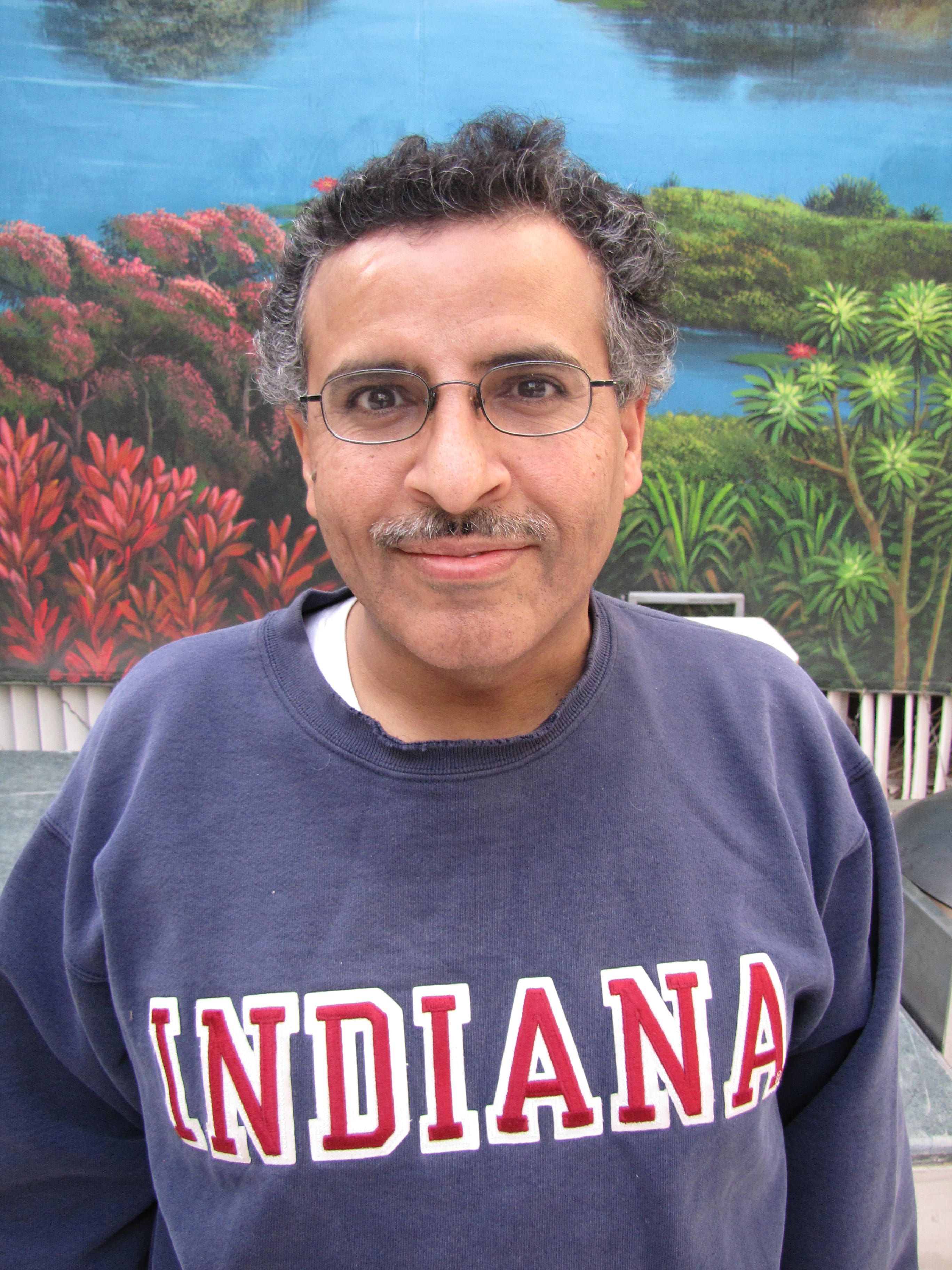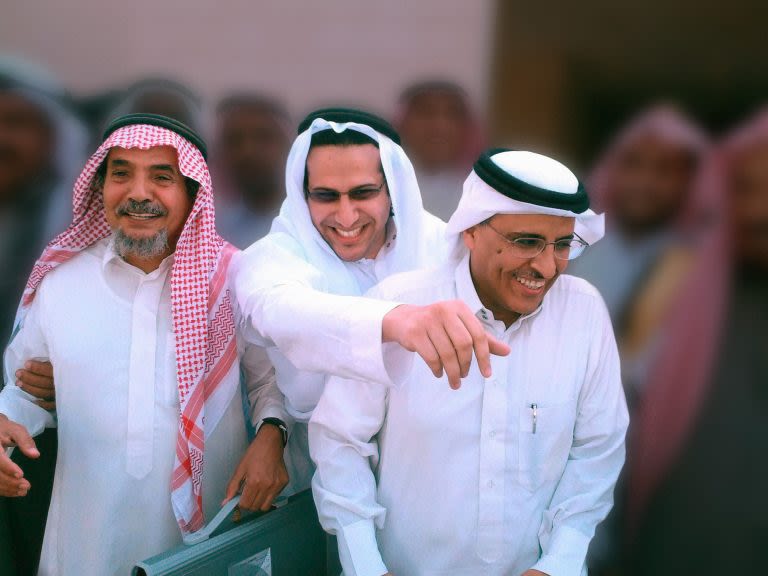2018 LAUREATE MOHAMMAD AL-QAHTANI
“I’m very, very proud of what
he accomplished.”
Abdullah al-Qahtani on his father Mohammad al-Qahtani
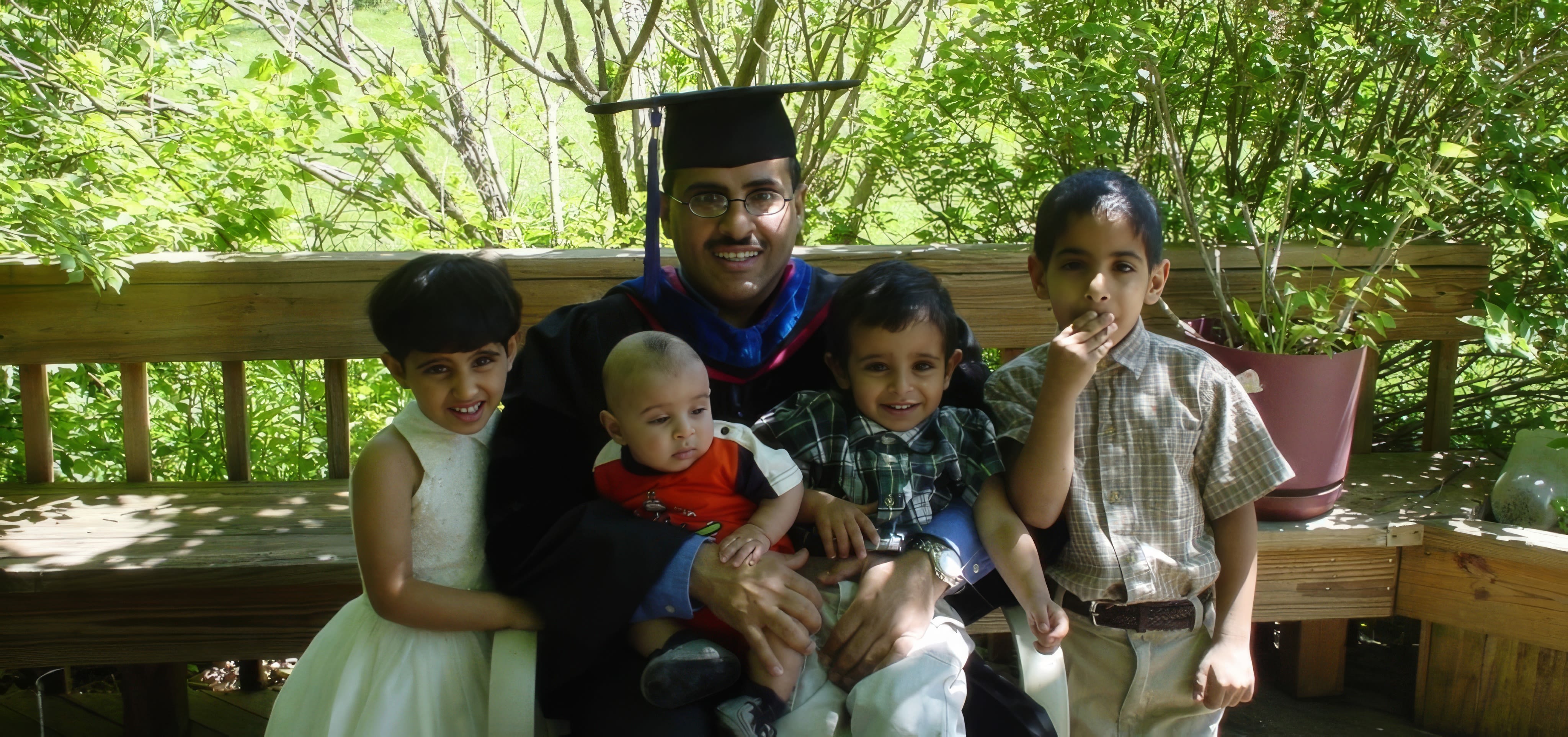
SERIES
Right Livelihood Laureates - stories told through the eyes of their families
Right Livelihood Laureates are brave individuals, but they aren’t superheroes. Like many of us, their daily lives are full of family struggles, worries and moments of happiness. That is why we’re launching “Right Livelihood Laureates through the eyes of their families”, a series of articles providing a rare, familial look into the Laureates’ lives.
2018 Right Livelihood Laureate Mohammad al-Qahtani
2018 Right Livelihood Laureate Mohammad al-Qahtani
On this page, Abdullah al-Qahtani tells the story of his father, Right Livelihood Laureate Mohammad al-Qahtani from Saudi Arabia, whom Adullah at the time of the interview hadn't heard from since November 2022.
Mohammad al-Qahtani received the Right Livelihood Award in 2018 for his commitment to promoting human rights and advancing democratic reforms in Saudi Arabia. Together with the late Dr Abdullah al-Hamid, who died in custody due to medical neglect, he created the Saudi Civil and Political Rights Association (ACPRA), which remains banned in the country.
Sentenced to 10 years in prison, Mohammad was to be released on November 22, 2022. However, he has neither been seen or heard from since. The Saudi authorities have refused to provide any details about his whereabouts or health status, despite numerous inquiries by his family and human rights organisations.
His son, Abdullah, came to Stockholm in November 2023 to highlight his father's situation at the Right Livelihood Award Presentation. We had the opportunity to sit down with Abdullah and hear his very personal story of what it was like growing up with a father who's not only an activist dedicated to human rights, but a loving family man, missed every day by his family.
On November 4, 2024, after two years of being forcefully disappeared, Mohammed's family unexpectedly received a 10-minute phone call from him from prison.
Two months later, on January 7, 2025, Mohammed was officially released.
"After over 12 years of unjust oppressor detention, my husband has finally been released, which made us very happy," his wife Maha told us.
Mohammad remains under a travel ban, which prevents him from reuniting with his US-based family. He's also suffering from various health problems, including losing sight in one of his eyes due to medical negligence by Saudi authorities.
A caring father
Abdullah was born in the US but grew up in Saudi Arabia. His family lived in Riyadh until his father's imprisonment. Abdullah has many fond memories of Saudi Arabia. When Abdullah talks about his father, he paints a picture of a fun-loving, warm person who spent a great deal of time with his family.
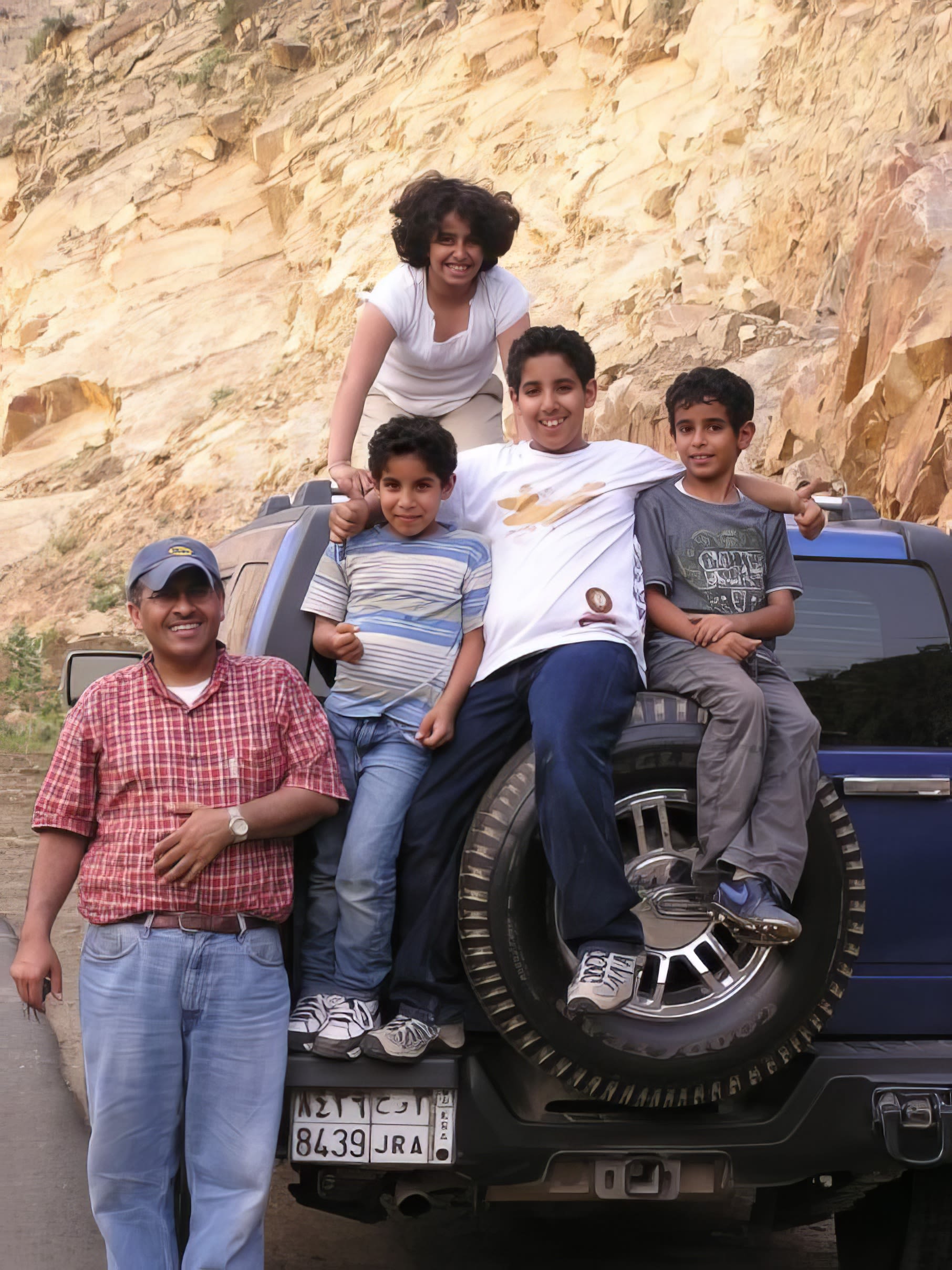
“As kids, dad would take me and my brothers camping in the desert every weekend. He would make us do some work, you know we’d gather firewood, cook steak on the wood fire and stay up till 9-10, drinking tea, having fun conversations around the fire with our family.”
- Abdullah al-Qahtani
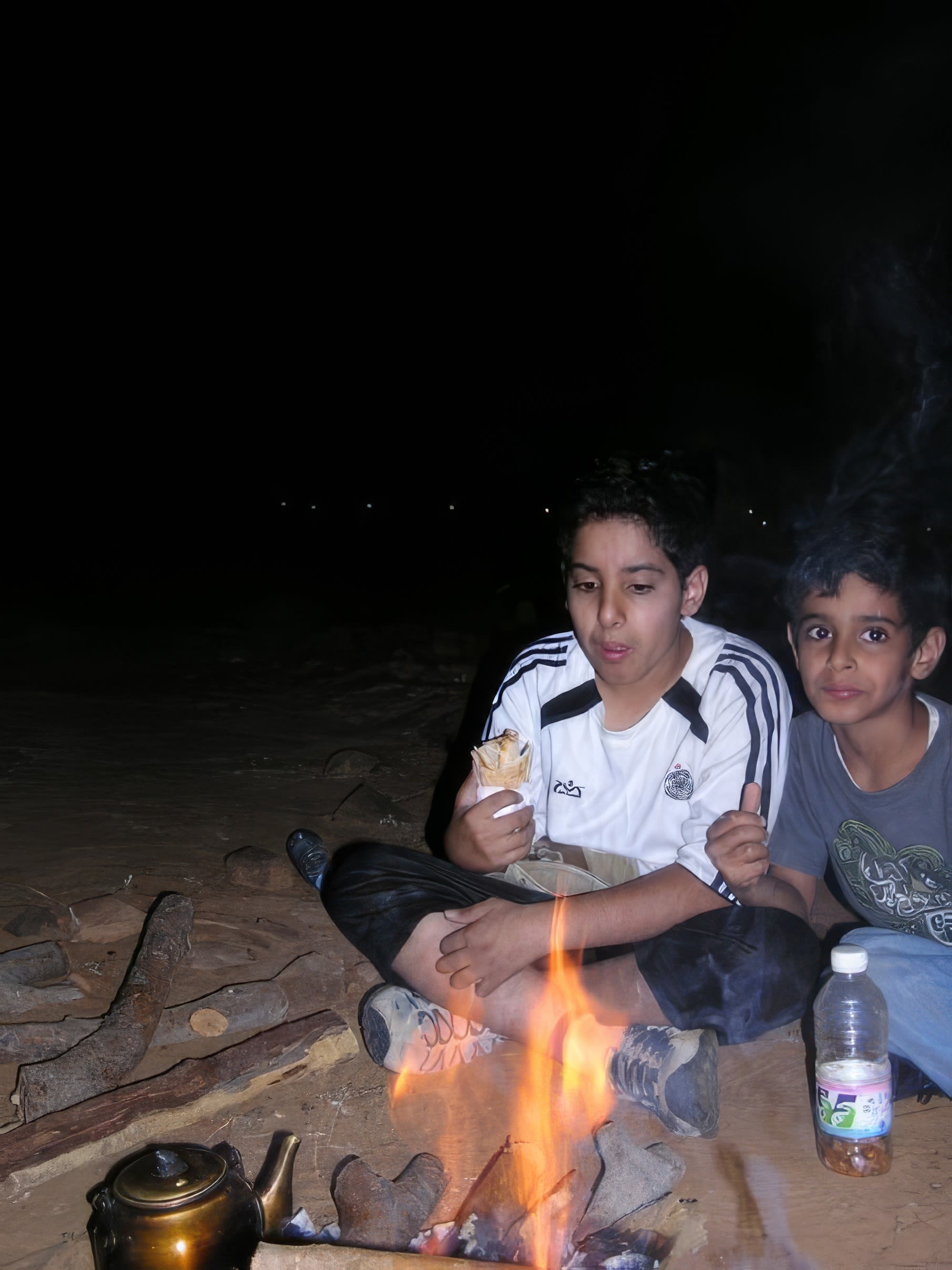
At the same time, his father's work as a human rights defender was always present in Abdullah's life. As a teenager, Abdullah remembers how his dad would bring him along to meetings with his friends.
Being more interested in video games than politics at the time, it wasn’t until later that Abdullah grew to appreciate the importance of the conversations he was privy to.
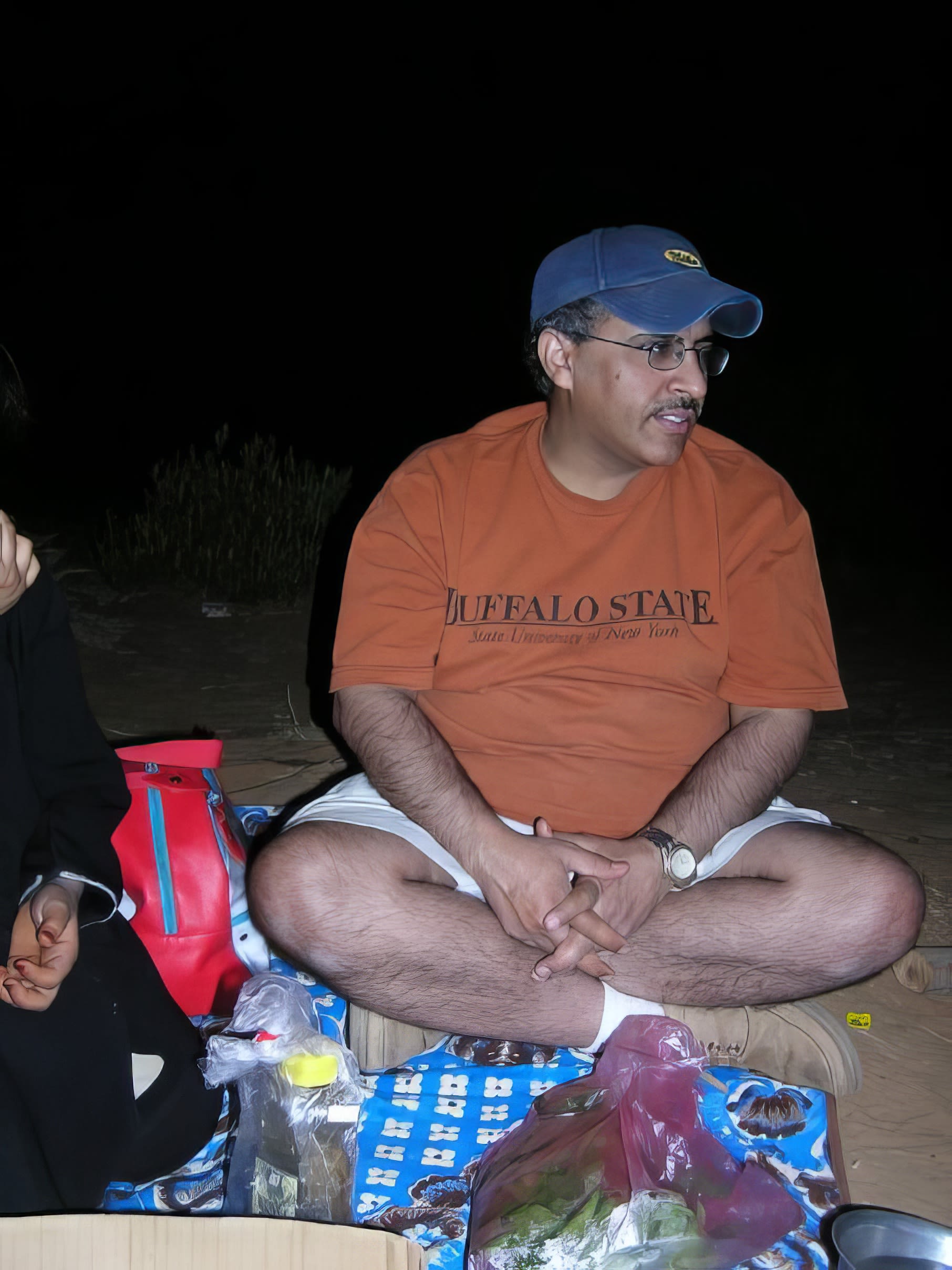
“Every Monday evening, my father went to see his friends and talk politics….As the oldest of my siblings, dad would always take me with him to listen in and serve the coffee that my mother prepared. I remember that we had to leave our cell phones in the car. He never told me why, but later, I understood that it was to avoid surveillance.”
- Abdullah al-Qahtani
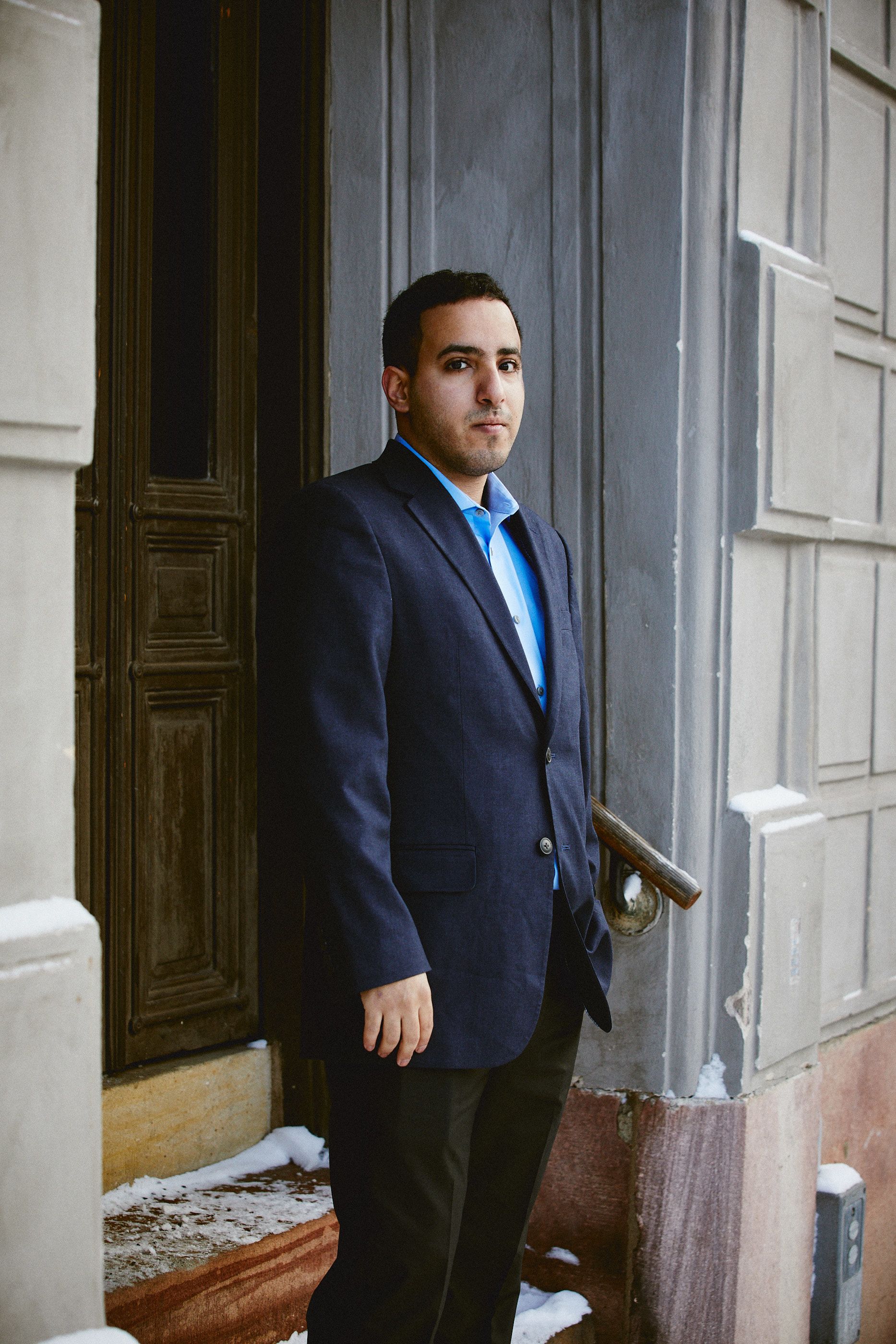
“Sometimes, I go on YouTube and listen to the videos my dad and his friends published back then. Now, I realise I was serving coffee to some of the most progressive champions of democracy and human rights Saudi Arabia has ever seen. One of them is my dad.”
- Abdullah al-Qahtani
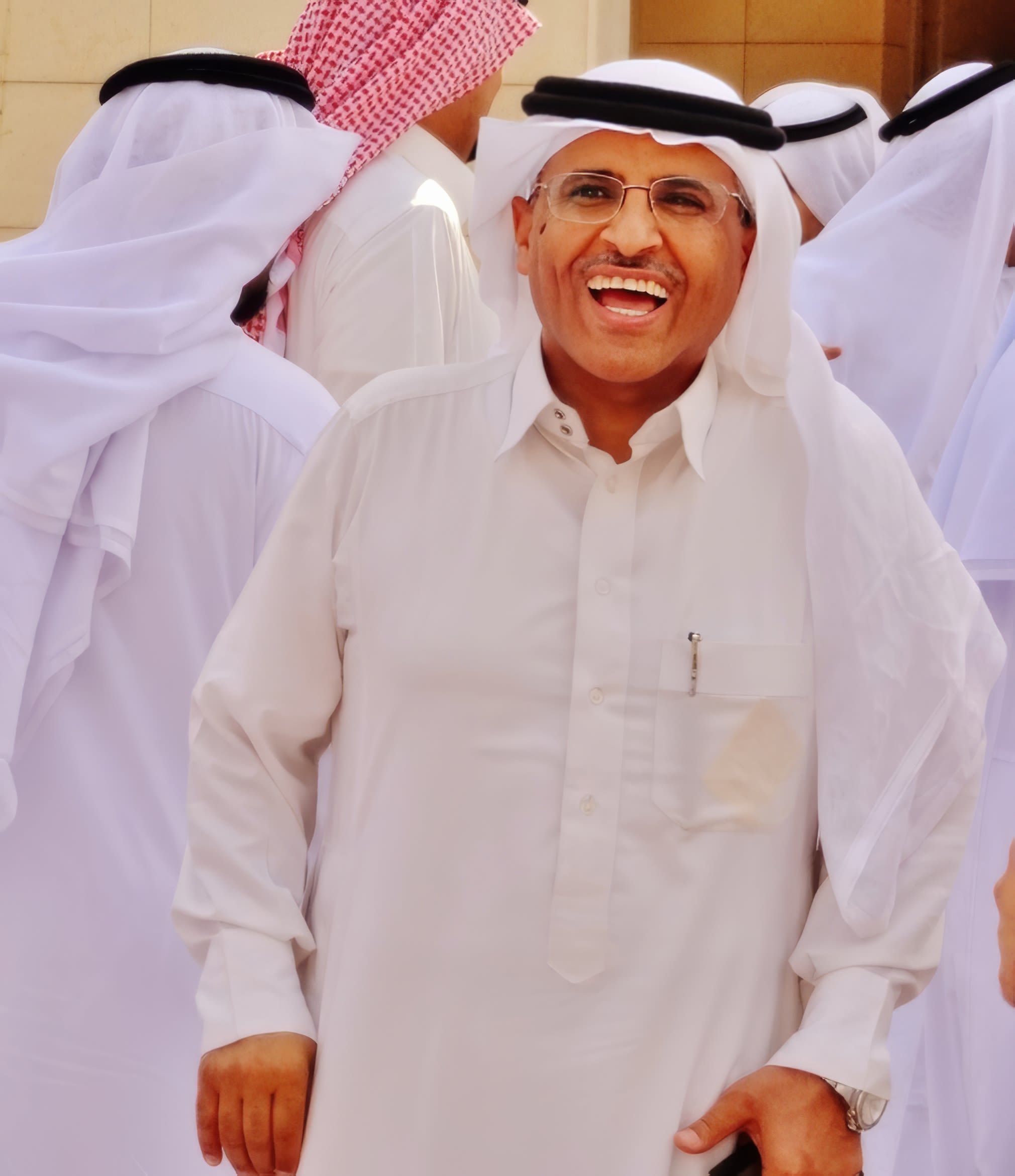
Saudi Arabia is an absolute monarchy. The king is the head of state and government, and supreme commander of the armed forces. State legislation is based on royal decrees, and the royal family dominates almost every aspect of political and economic life in the country. Saudi Arabia has long been recognised as one of the most repressive and dangerous countries in the world for human rights defenders, where basic rights, such as freedom of speech and assembly, are denied.
Along with nine fellow activists, Mohammad and Abdullah al-Hamid created the Saudi Civil and Political Rights Association (ACPRA) in 2009, one of the few independent civil society organisations in the country. The organisation promoted human rights in Saudi Arabia and called for political reforms, including an elected parliament and independent legal institutions to protect citizens’ rights and enforce government accountability.
After its creation, ACPRA’s leaders and founders were systematically targeted by the Saudi authorities, who promptly shut down the organisation, which remains banned in the country. They also handed down lengthy prison terms to the 11 founders for providing an alternative to the Saudi regime’s narrative. Combined, the sentences totalled 105 years in prison and 94 years of travel ban, besides monetary fines and other punishments.
Imprisonment
In March 2013, Mohammad was sentenced to 10 years in prison. The charges included “breaking allegiance to and disobeying the ruler,” “questioning the integrity of officials,” and “inciting disorder by calling for demonstrations.”
“My father smiled at the judge handing down the sentences,” Abdullah said.
“My dad did what he did to ensure that we, his children, can live freely in Saudi Arabia. I hope that in the future, Saudi Arabia will be more aware and open to human rights and give more power to the people instead of only to the ruling Saudi family.
My dad was really pushing for a constitutional monarchy. He wasn't saying, we're going to remove them.’ No, you can stay in your power. But we need more power for the people.”
- Abdullah al-Qahtani
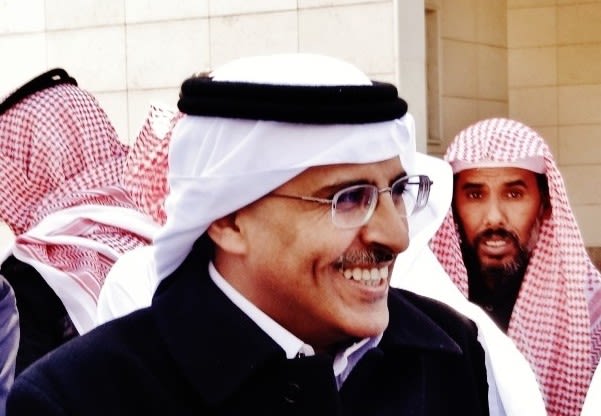
Five children separated from their father
Together his wife, Maha, Mohammad raised five children: Abdullah, Norah, Omar, Othman, and the youngest, Layla.
When the trials against Mohammad started, he and his wife started to prepare to relocate the family to the US. In early 2013, when Maha finally took the five kids and boarded a flight to the US, baby Layla was only a few months old.
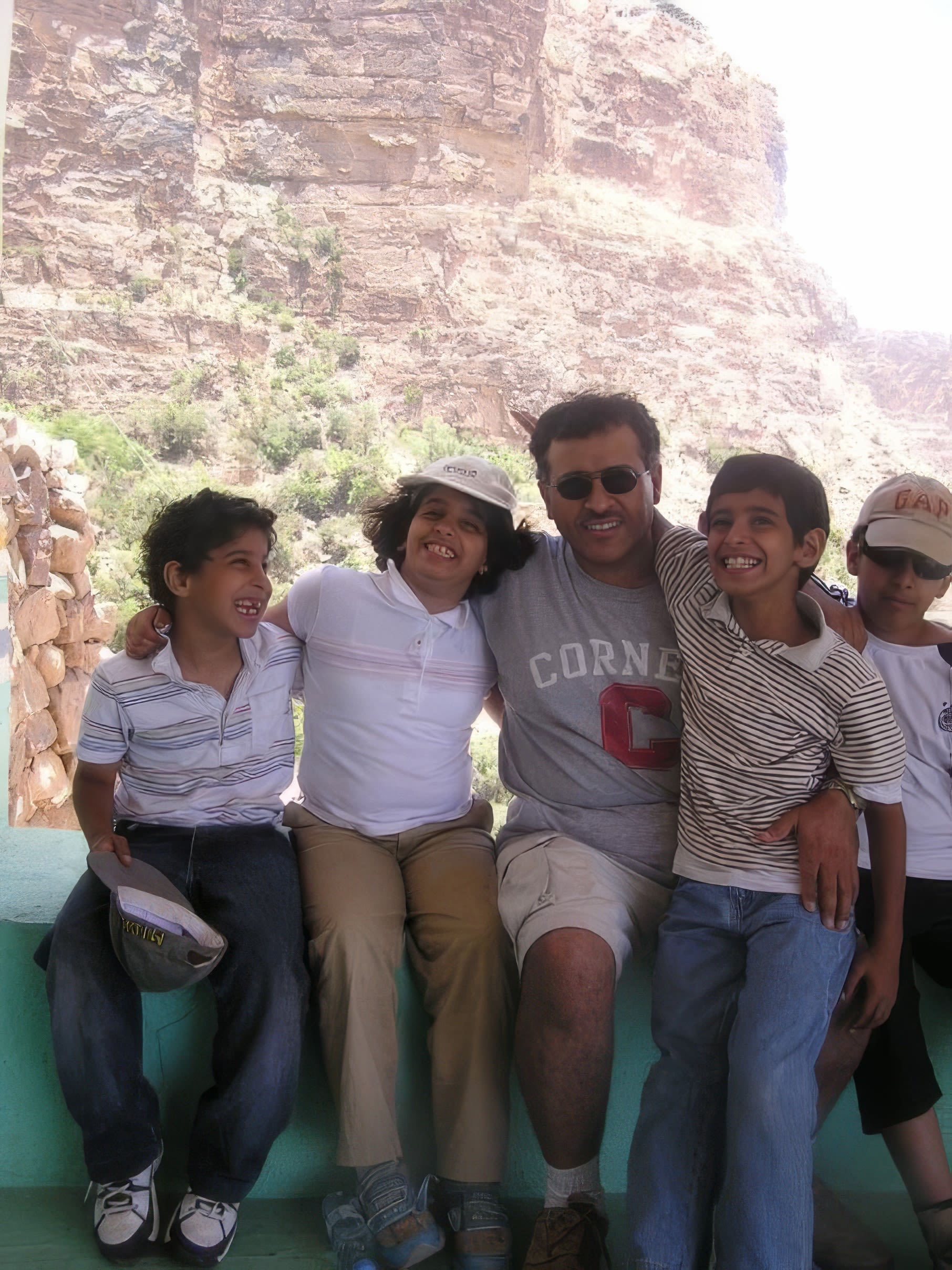
Despite being imprisoned, Mohammad spoke to the kids nearly every day, encouraging them to study hard and engage in sports. He even called their school and made every effort to never miss a parent-teacher conference. However, officials occasionally restricted Mohammad's access to a phone, which was especially hard on Layla, who knew her father solely through those daily calls.
“Sometimes, he could be hard on us, especially if we didn’t focus on school. But my little sister Layla was a special case, he was never hard on her. Whatever she asked for, dad would say that we had to do it for her, and he would follow up on the matter later on,” Abdullah said with a smile.
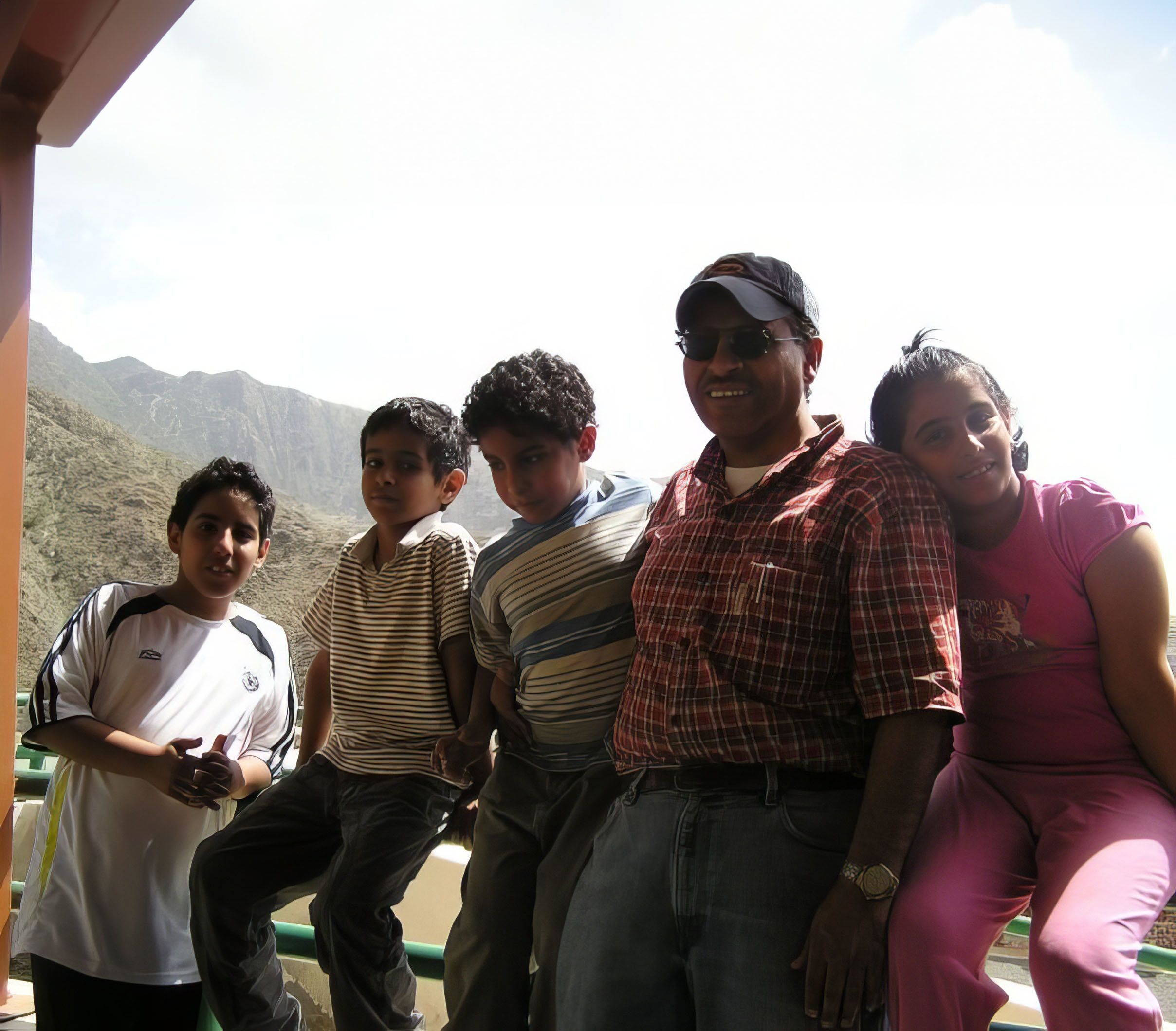
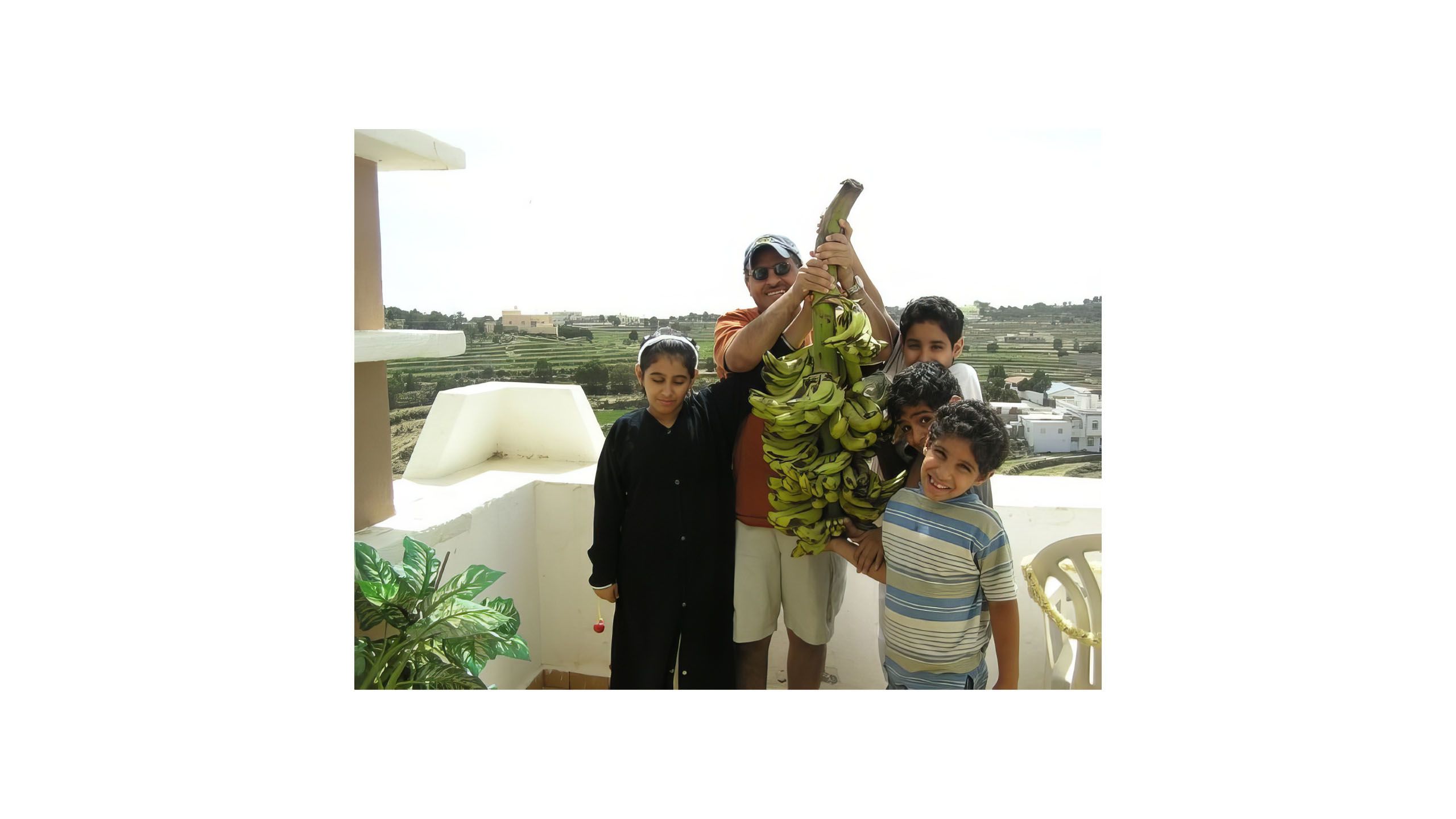
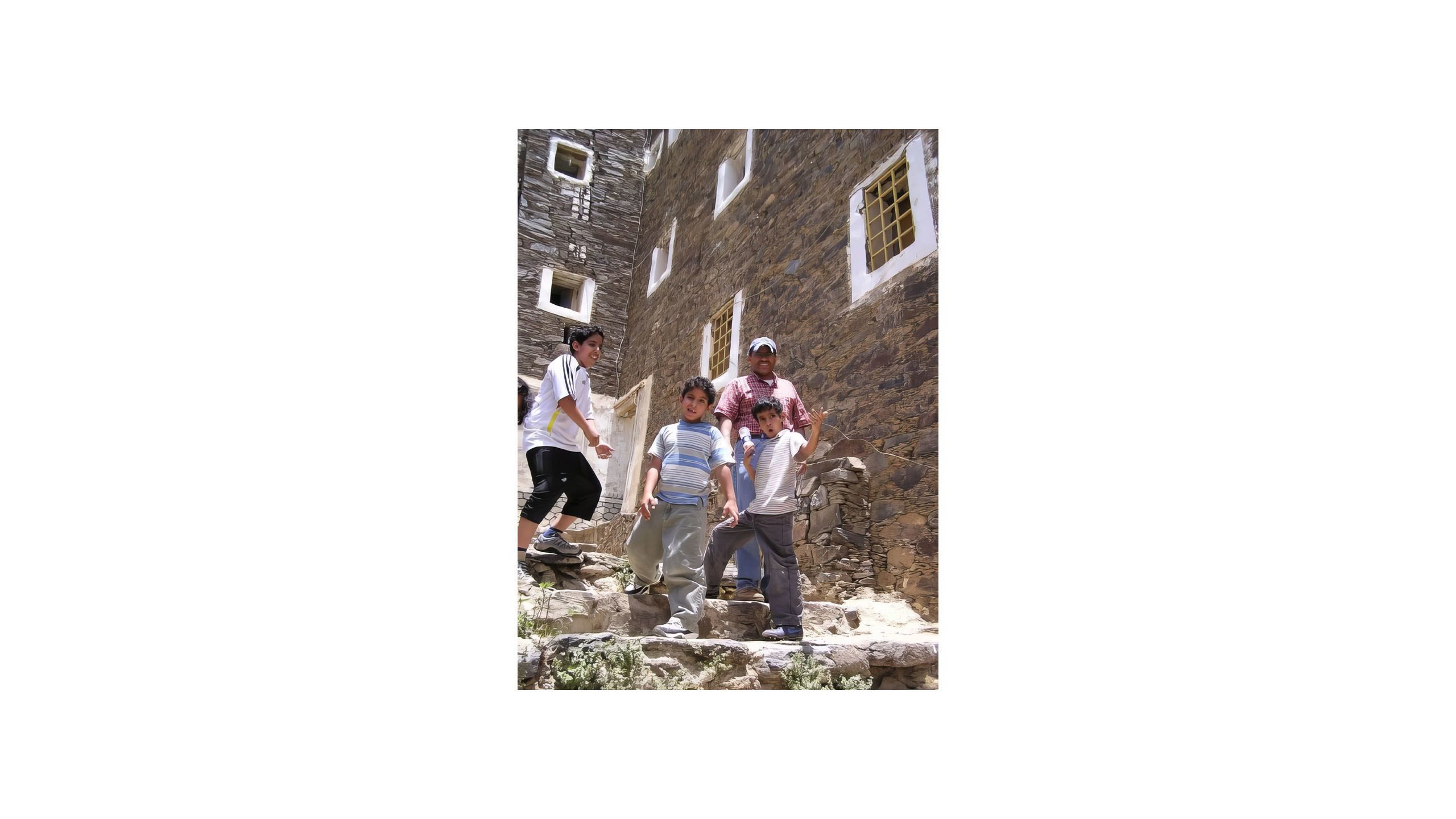
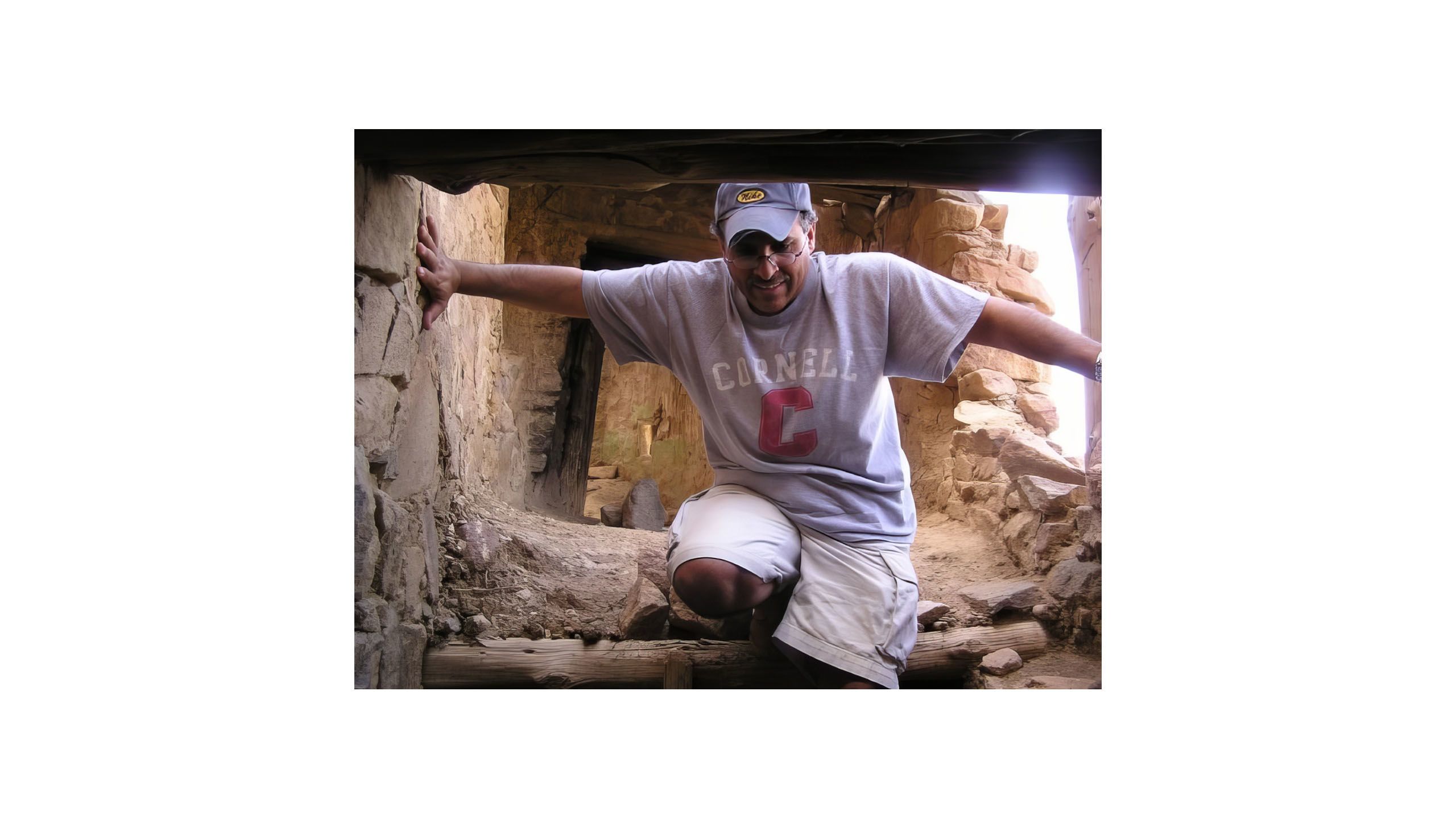
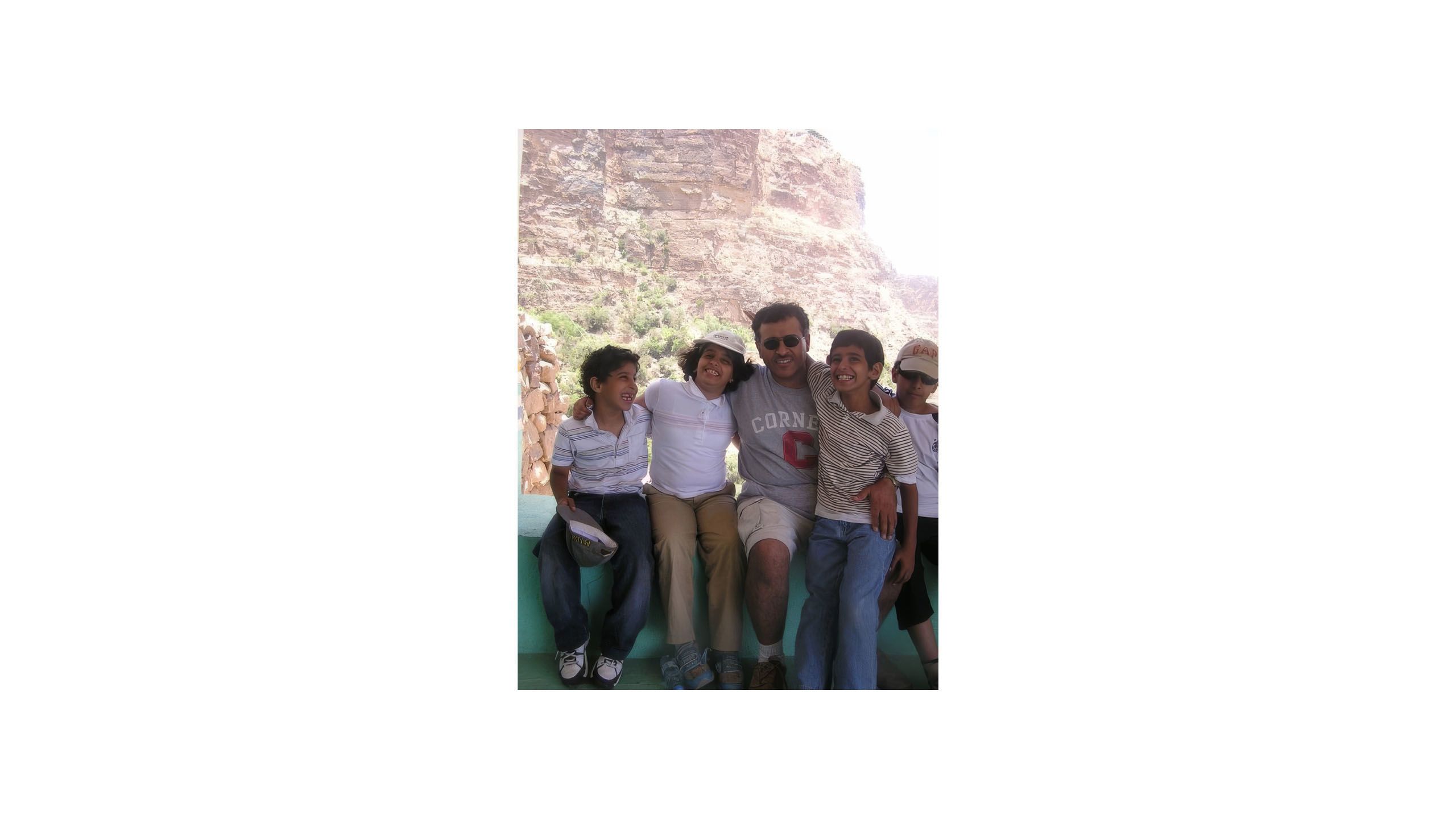
On October 20, 2022, just a month shy of Mohammad’s scheduled release date for November 22, the phone calls stopped completely and the family lost all communication. The highly anticipated day came and went without any news about Mohammad's whereabouts
“It was very very tough at the beginning, and it is getting tougher and tougher because we’re now more than 14 months past the release date, and we know nothing about him. We have no contact with him.
I had the privilege to grow up with dad, but Layla never had the opportunity to live her life with him. The only connection she had with her father was through phone calls. She asked me why ‘Baba’ didn’t call anymore, and I didn’t know what to say, I was stunned,” Abdullah said.
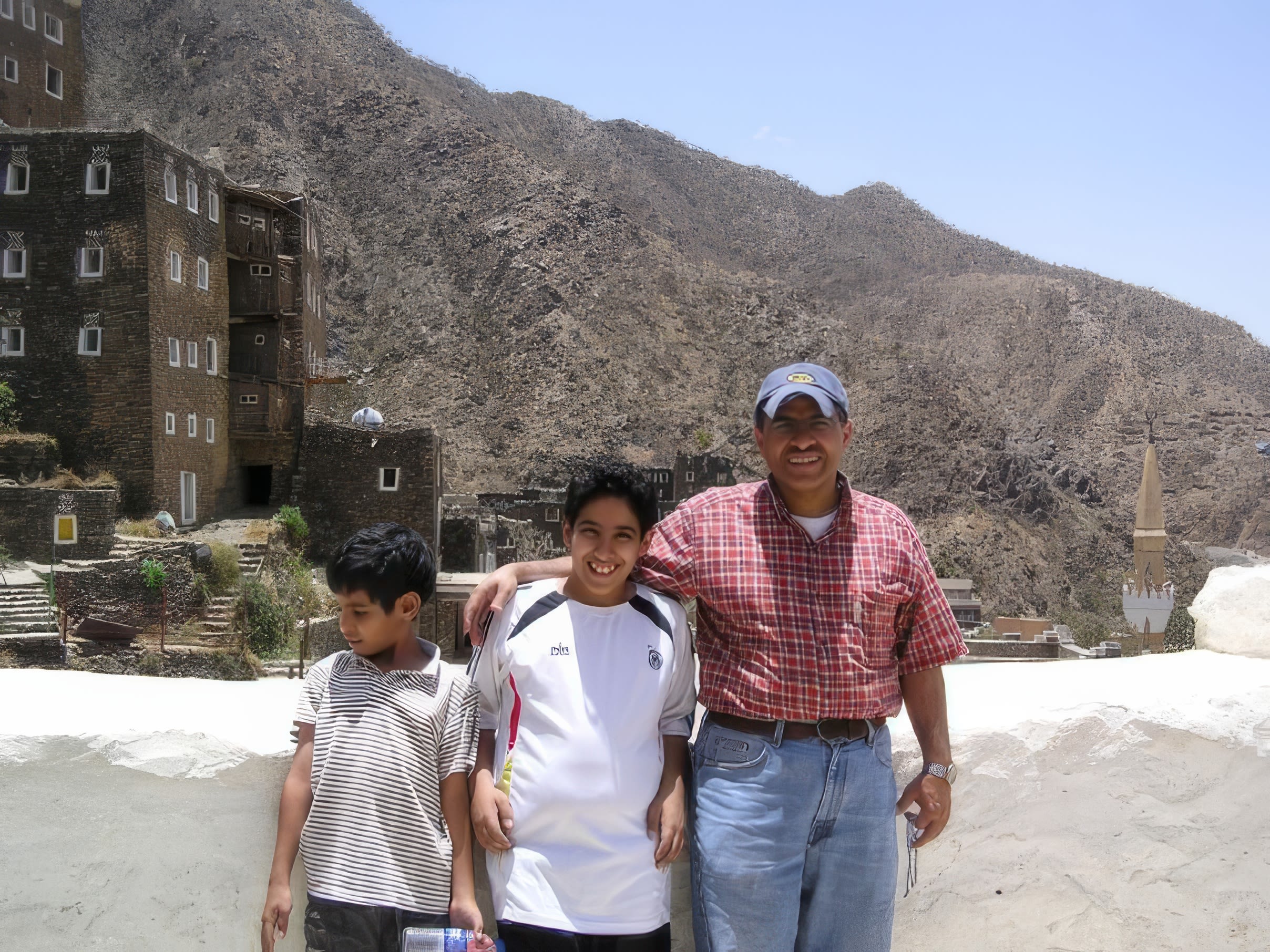
“He used to call us twice per day, for ten long years. For all those years, I thought we supported Mohammed. When his daily calls suddenly stopped in October 2022, I realised that it was the opposite - he supported us!”
Maha al-Qahtani
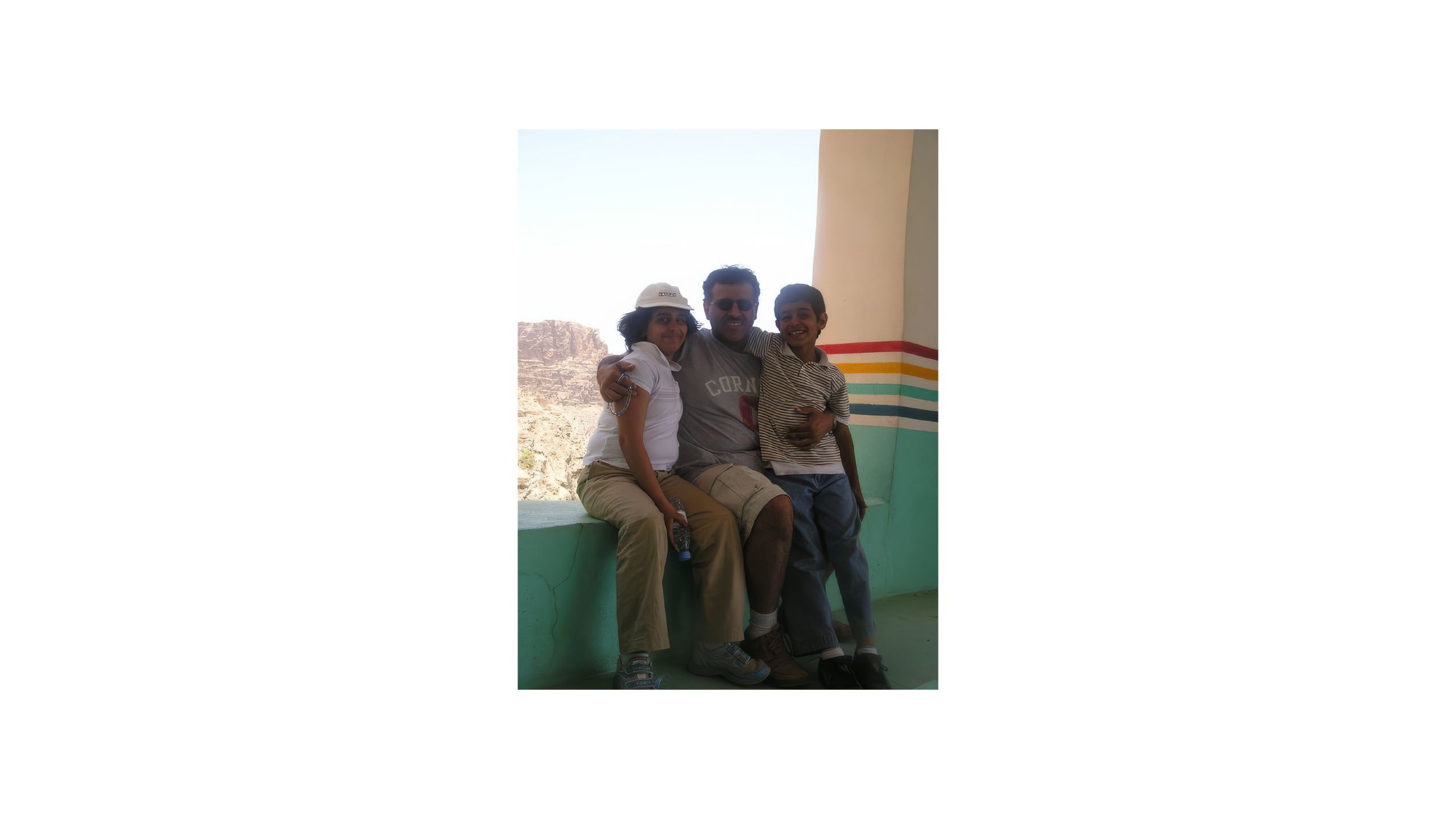
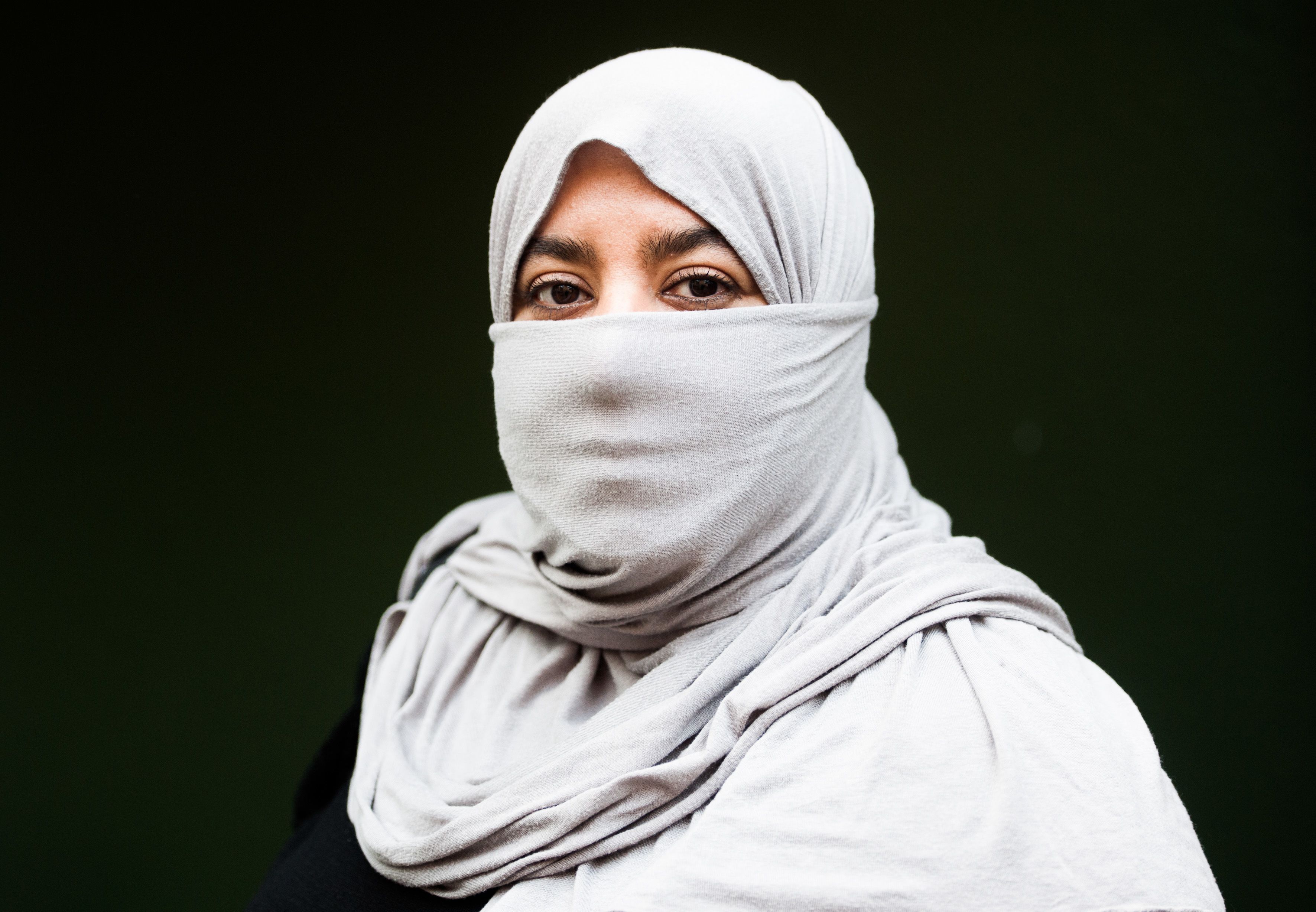
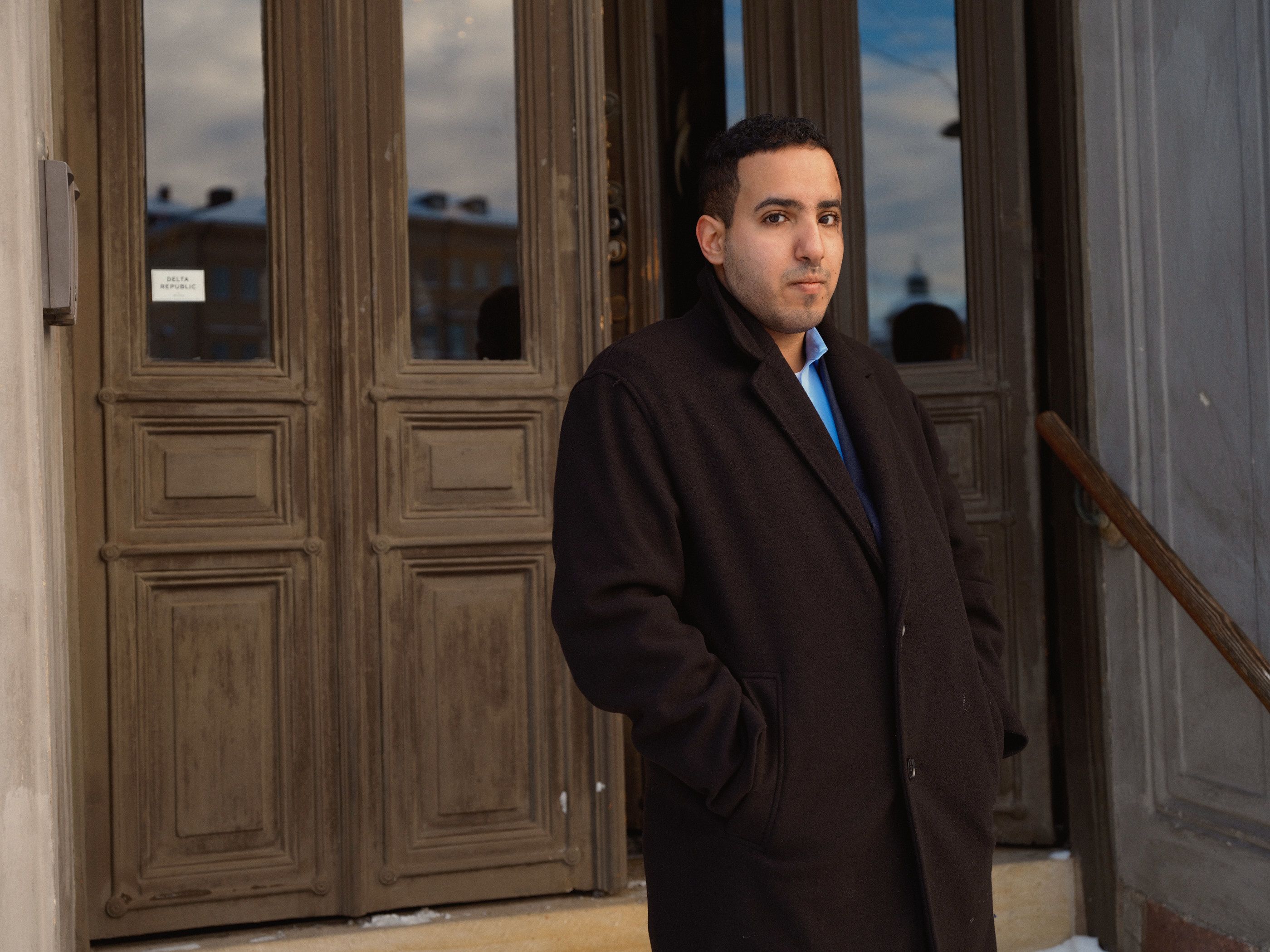
During his father’s imprisonment, Abdullah credits their mother, Maha, for keeping their family together and making sure they always felt safe
“Without her, I don’t think we would be where we are today,” Abdullah said. “She has been a strong woman behind my dad this whole entire time, advocating for his release, posting online, travelling, really pushing for his release. So I really want to thank my mom for everything that she’s done, not only for my father, but for the family.”
Maha has called Saudi officials every day since Mohammad was forcefully disappeared. “I have been writing to the UN, the Saudi king - everyone," she said with a sigh. “‘Forget that man and move on,’ a Saudi official once told me!” Maha said and added adamantly: “We will never forget him!”
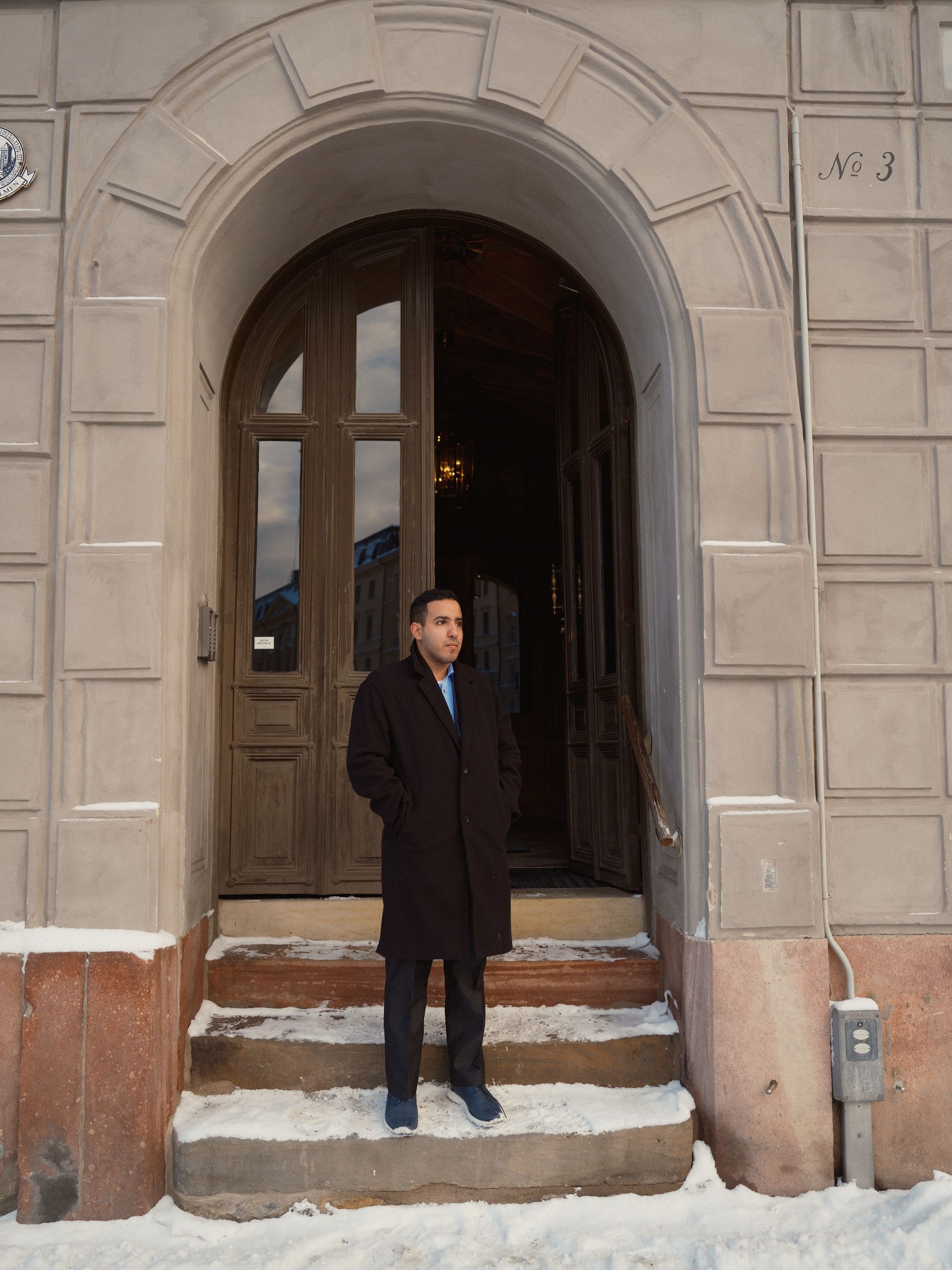
Becoming an activist
Maha and Mohammad wanted their kids to live normal lives in the US, and for many years, Maha was the only one in the family who was deeply involved in Mohammad’s case.
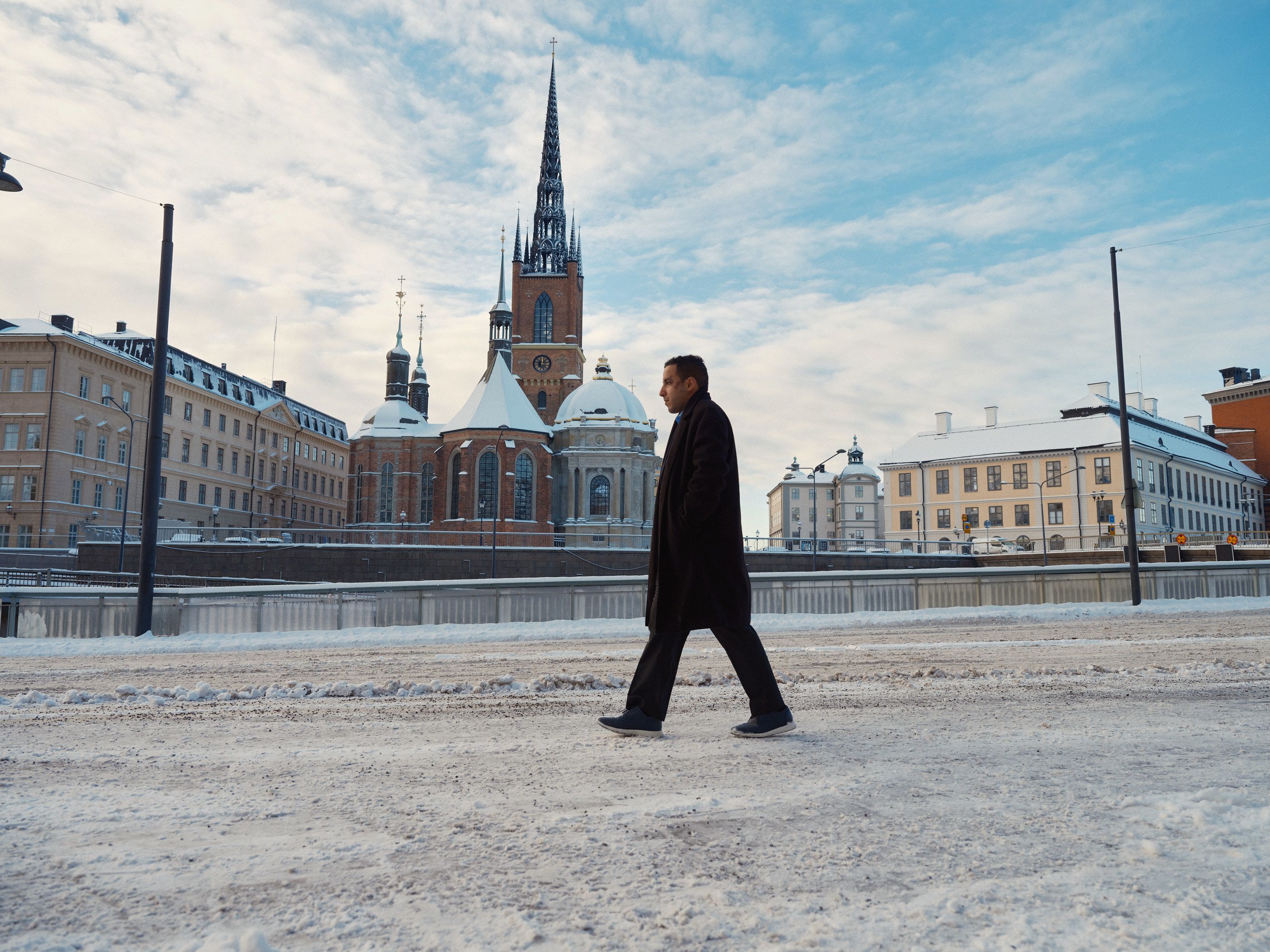
“Until nine months ago, I never got involved in human rights. I went to school, did my work, you know, focused on myself and the family. As of 14 months ago, my dad was forcibly disappeared, and we have had no contact with him since. Despite my mom reaching out to various officials, we have received no answers about where he is or how he is.
So, I wasn’t publicly engaged until recently, but my mom has been active throughout. I was the only one in the family that went back and forth between the US and Saudi [Arabia], so I never got involved out of fear.”
- Abdullah al-Qahtani
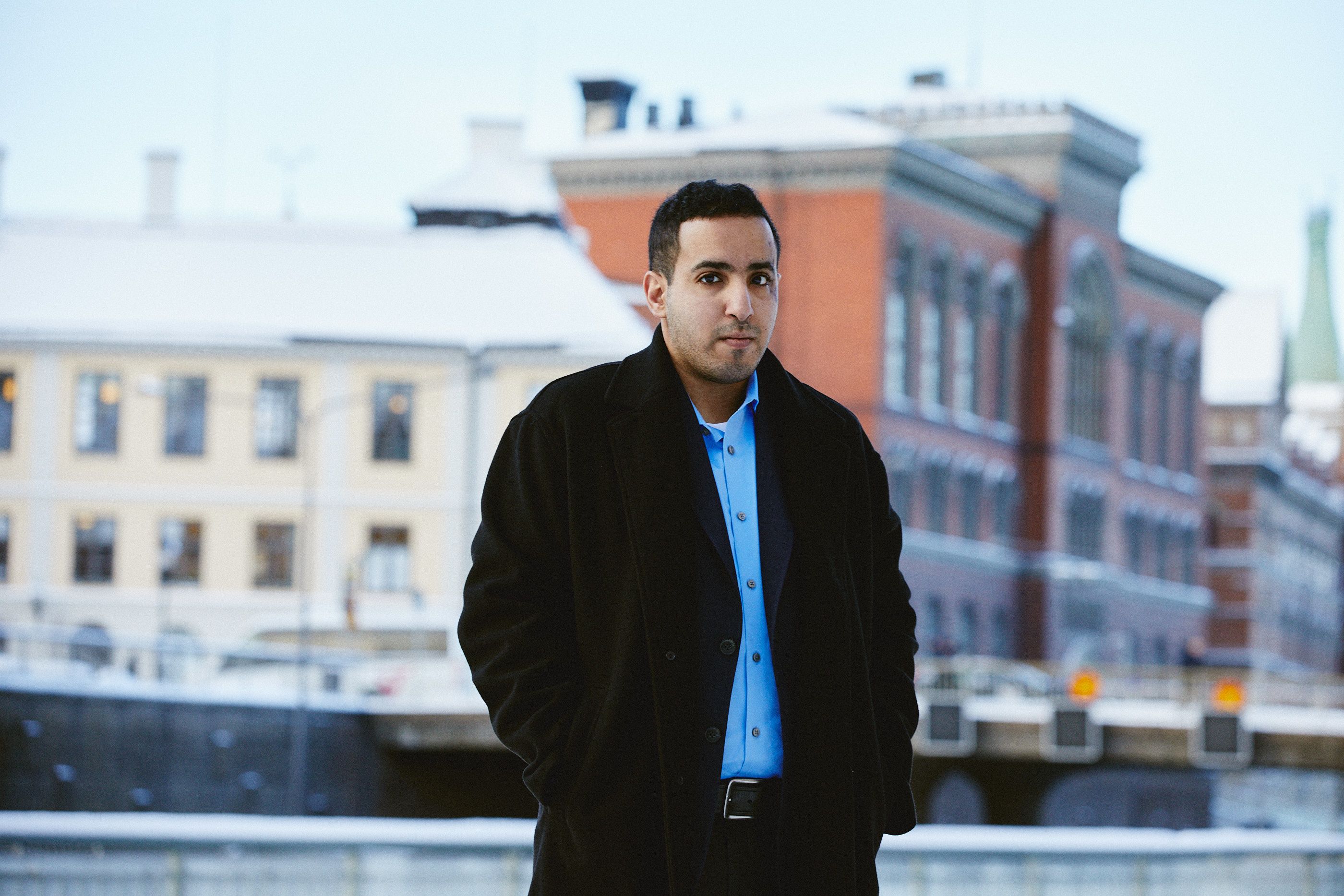
Reflecting on his newfound engagement in human rights, Abdullah gained a new understanding of the global impact of his father’s work.
“At the beginning, I was very nervous. But everybody spoke very highly of him. I’m very, very proud of what he accomplished. I didn’t realise that he had such an outreach all over the world. I was in London, and everybody was telling me, ‘Oh, my God, you’re the son of Mohammad al-Qahtani, oh my God.’ And it was just shocking to me.”
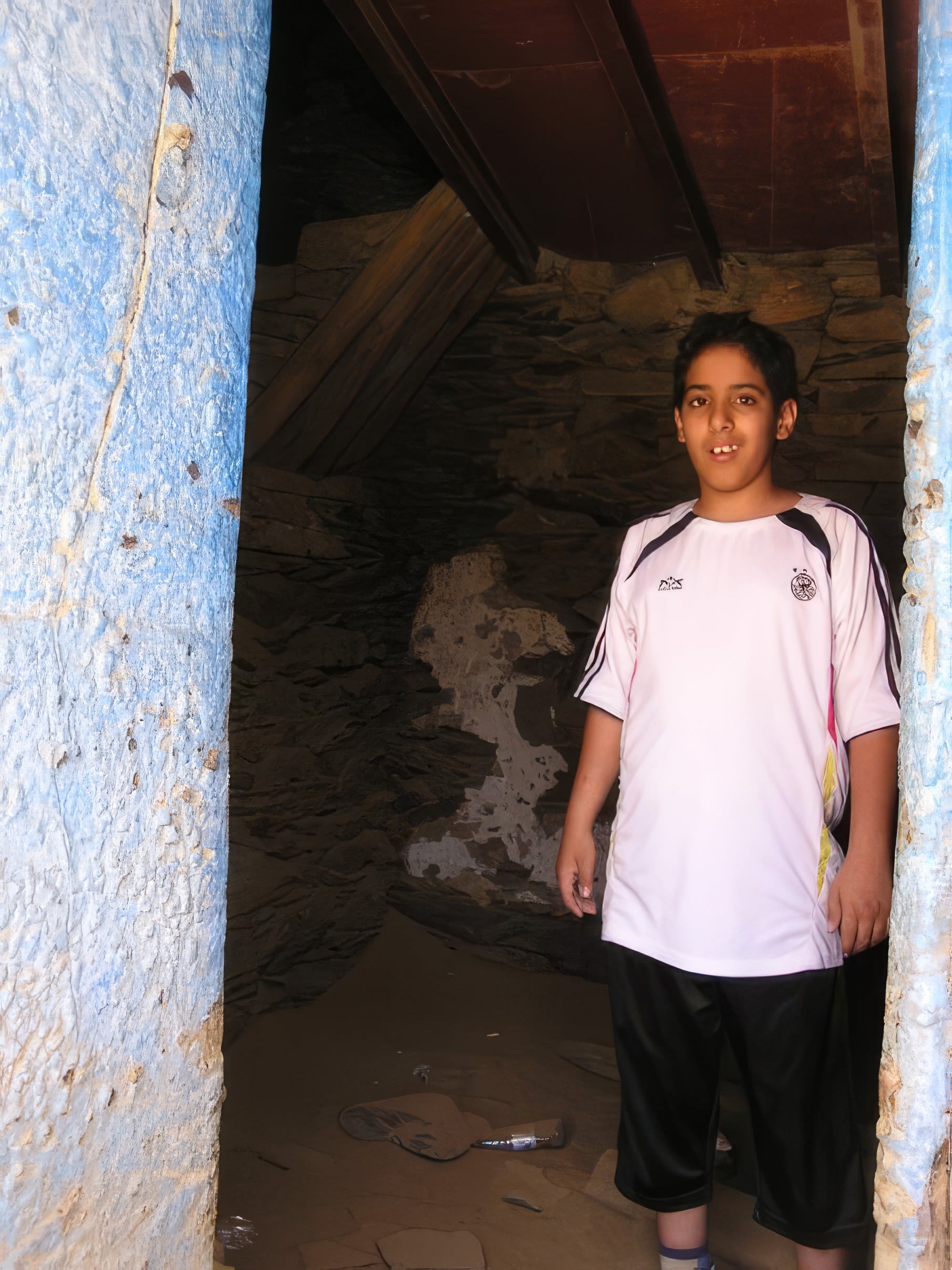
During his trip to Sweden, Abdullah showed us that he was willing to walk the talk. Joined by Right Livelihood and a Swedish journalist, Abdullah went to the Saudi embassy in Stockholm on November 30, 2023, delivering a letter and a petition signed by more than 1,400 people calling for the release of his father. He was met with hostility outside the embassy, and Swedish police arrived at the scene. At this point, Abdullah was allowed to enter the embassy, escorted by two Swedish police officers. He handed the letter to a diplomat.
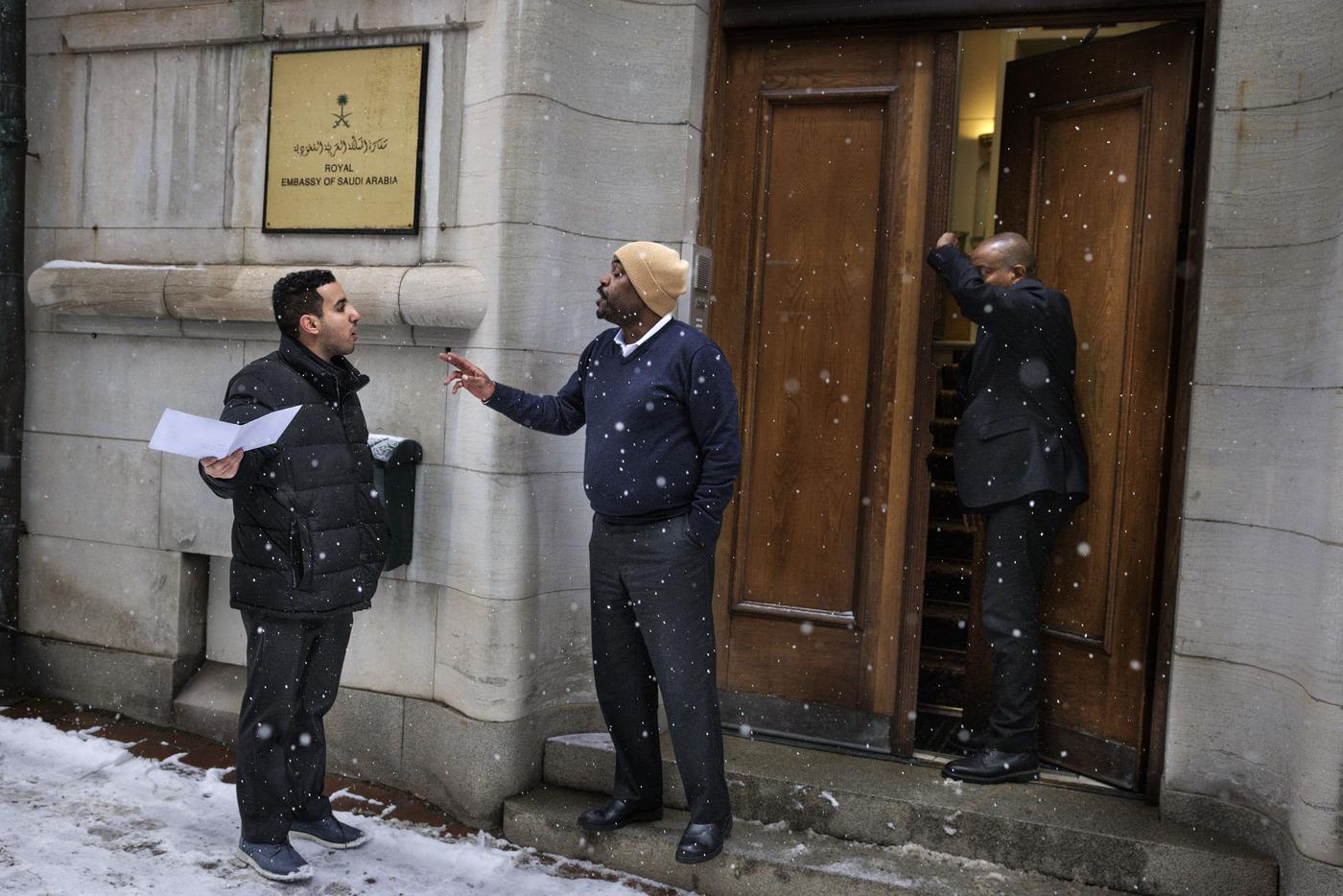
What will he do when he sees his dad again? Abdullah doesn't hesitate.
“We’re gonna hug him,” he said. “I’m gonna hug him for like 30 minutes. 30 minutes. I definitely want to go camping. That’ll be the first thing I want to do. Hopefully in Saudi [Arabia], but if not, maybe in the US. And I’m sure he would probably want to do the same thing with Layla.”
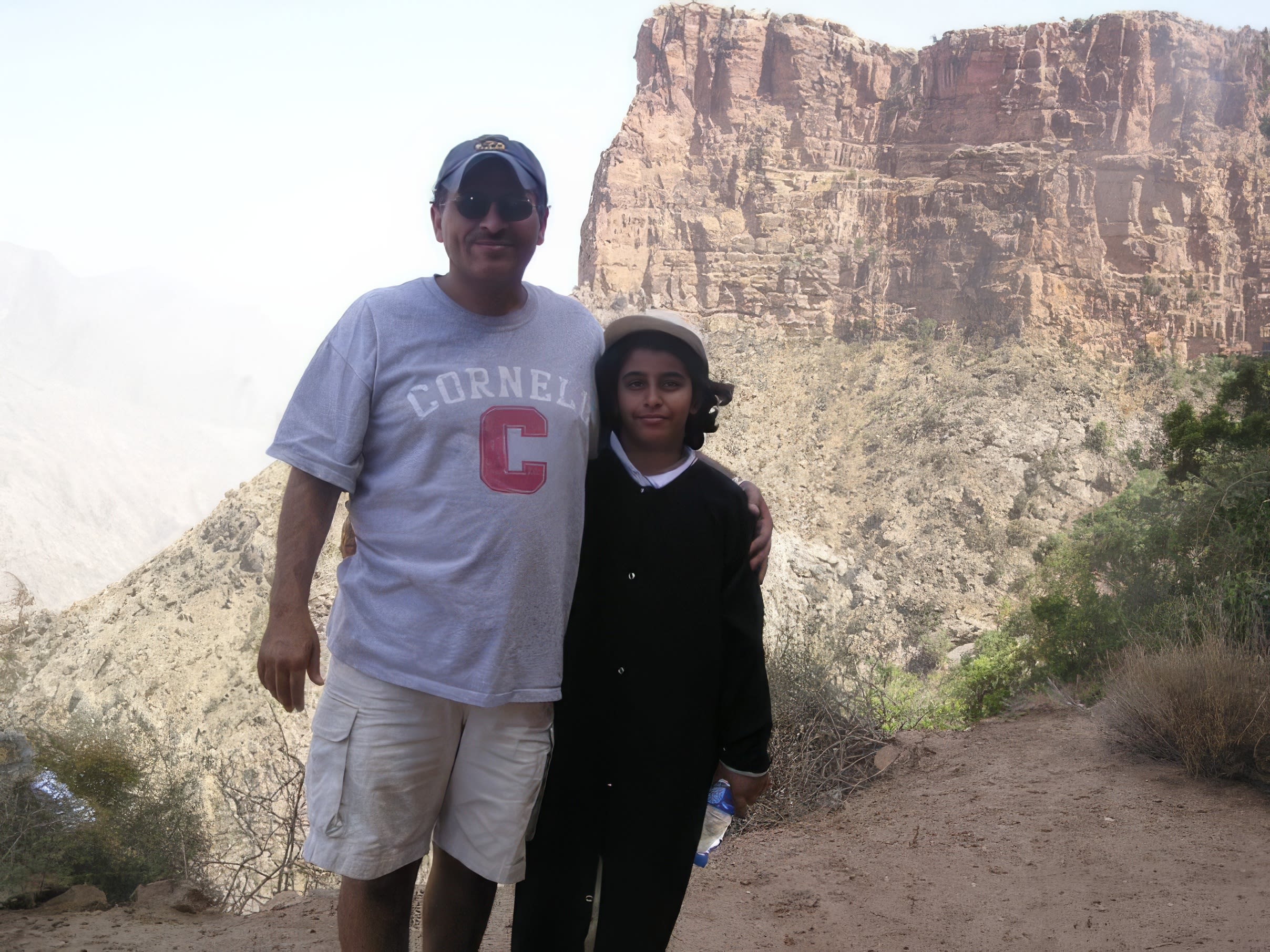
When Mohammad al-Qahtani received the Award in 2018, his wife Maha and their other son Omar came to Stockholm to accept it in his place.
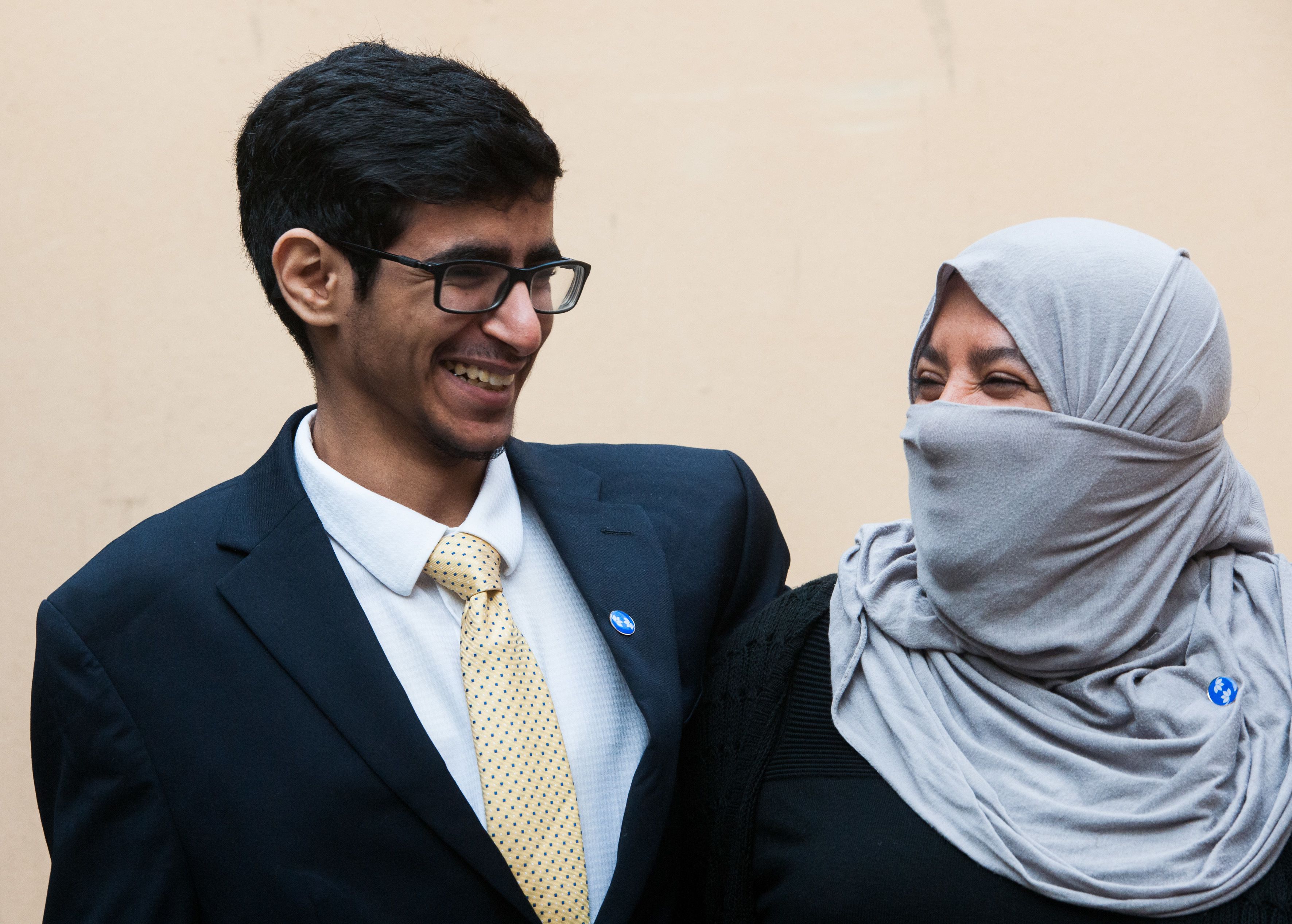
Support the Laureates' work for a more just, peaceful and sustainable world.
Support Right Livelihood's mission to boost urgent and long-term social change. Your contribution will help us showcase the inspiring stories of our Laureates and raise awareness about pressing global issues through our captivating visual stories. Together, let's amplify the Laureates' solutions, honour their courageous work and drive positive change to achieve peace, justice and sustainability for all.
